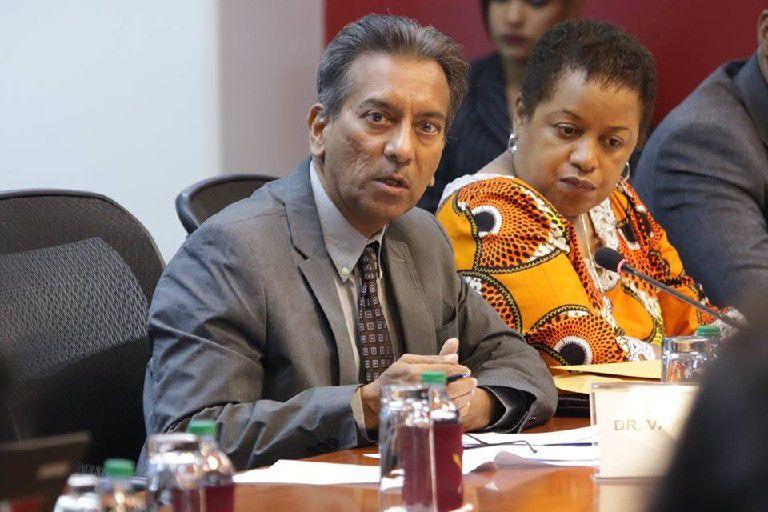(Trinidad Express) Independent Senator Dr Varma Deyalsingh says, given the ill-effects of alcohol, legislation should be passed that will make it harder for people to obtain liquor licences.
“In my profession, I see the ills of alcohol. I see the effects on the wives and children of alcoholics. The whole family is affected. Alcohol doesn’t affect just the individual and his family, it affects also society on the whole,” Deyalsingh said yesterday during his contribution to the Senate debate on the Licensing Committee (Validation) Bill 2018.
“I am saying that we have it in our power to reduce the ill-effects of alcohol, in this Chamber. We should feel proud if we passed legislation to decrease alcohol consumption in our nation,” he added.
He noted that a Pan American Health Organisation status report on alcohol identified Trinidad and Tobago, Dominica and St Kitts-Nevis as having the highest rates of alcohol consumption in the Americas.
And according to PAHO, Deyalsingh went on, one in five or 22 per cent of current drinkers engage in heavy episodic drinking, which was higher than the global average of 16 per cent.
“In 2012, PAHO said alcohol contributed to the deaths of over 300,000 persons worldwide and it contributed to 200 diseases and injuries, including cirrhosis of the liver and some types of cancers,” he stated.
Deyalsingh said while Attorney General Faris Al-Rawi, who tabled the Bill, has focussed on protecting children by outlawing child marriages, establishing the Children’s Court and trying to assist children who are abused in the home, “we are still failing our children”.
The purpose of the Bill is to validate the constitution of licensing committees established under section 5 of the Liquor Licences Act (Chap. 84:10), as well as the grant, transfer and renewal of licences and all other actions and omissions of such committees, during the period July 21, 2014, to present.
Deyalsingh said when the Liquor Licences Act (2014) was brought to the Parliament by the previous government, he was highly critical of it because of the composition of the proposed Licences Committee.
He said he was “re-traumatised when Licensing Committee (Validation) Bill was introduced in Parliament.
“The new composition that came about would have actually made it easier for persons to get liquor licences,” he said.
Specifically, Deyalsingh felt that a member of the business community should not be allowed on the committee as that person would be “biased on the terms of the business side and would not look at the social needs”.
Instead, Deyalsingh suggested that a member of the clergy, school or Parent Teacher Association (PTA) should be on the committee.
As such, he called on Al-Rawi to hold his hand on the Licences Committee (Validation) Bill so “quick” changes can be made to the Liquor Licence Act (2014).






